Australian researchers use deadly funnel-web spider venom to create heart attack, stroke drug treatment
It’s one of the world’s deadliest spiders, but now researchers expect the funnel-web could save “thousands of lives” after uncovering the untapped power of its venom.
News
Don't miss out on the headlines from News. Followed categories will be added to My News.
Far from terrifying people into a heart attack, a tiny dose of venom from the much-maligned funnel-web spider may prove to be a lifesaver for people following heart attacks and strokes.
In a world-first, Australian researchers have created a drug using a molecule from the venom of one of the world’s most deadly spiders they say may also transform heart transplants.
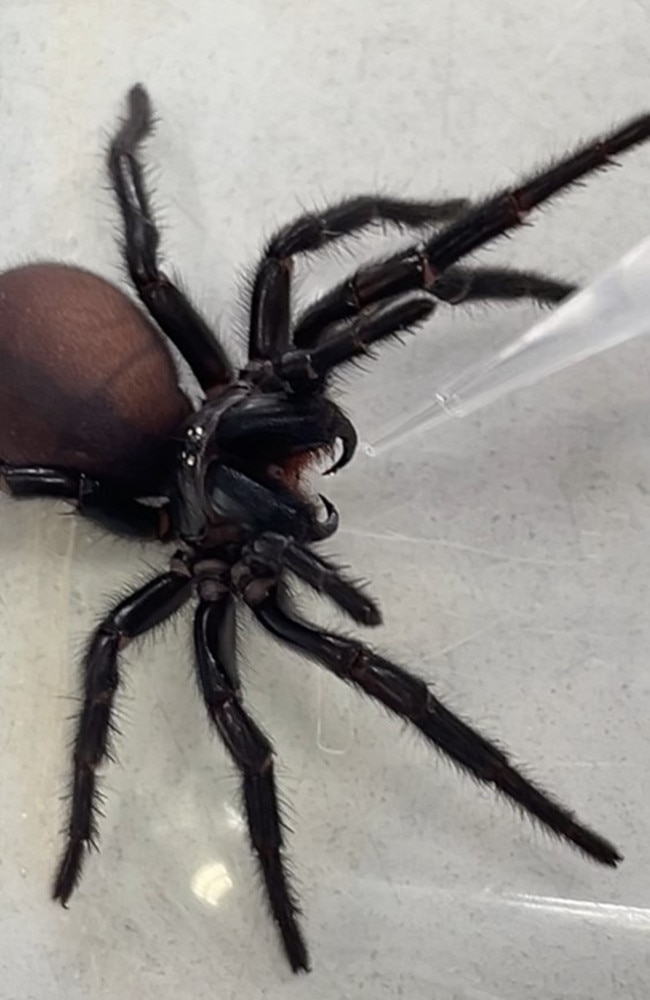
Following more than a decade of research, the University of Queensland team is now preparing to start clinical trials of the drug.
The national research project is being run in collaboration with Australian bioscience company Infensa, the Latin word for funnel-web spider. Infensa’s role will be to take the drug to market.
The research is being led by Glenn King. Prof King’s team is investigating if the molecule called Hi1a can be a lifesaver for cardiovascular patients.
He said heart attack and stroke are the biggest killers globally but there is no single drug to protect the heart or brain after these events.
Ironically funnel-webs have Hi1a to protect them from predators, but the researchers found that in humans the drug stops heart and brain cells from dying.
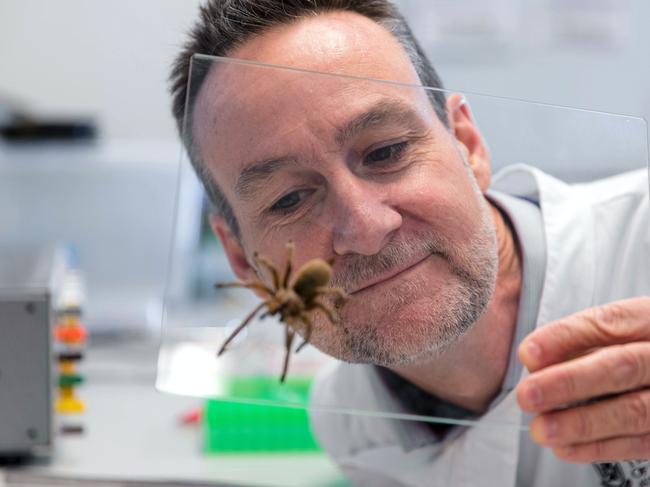
Prof King’s laboratory is a global leader in venom biology for drug discovery. He is working on the project with Nathan Palpant at the Institute for Molecular Bioscience in Queensland.
“Glenn’s lab has been discovering drugs derived from venoms and working with my team to develop evidence for therapeutic use in heart disease,” Prof Palpant said.
The Federal Government will announce on Sunday it is investing almost $18 million in this world-first research project, funding that Prof King said was “hugely important” to enable its quick transition into human clinical studies.
“And hopefully prove its value for patients suffering from a stroke or heart attack, or those needing a new heart,” he said.
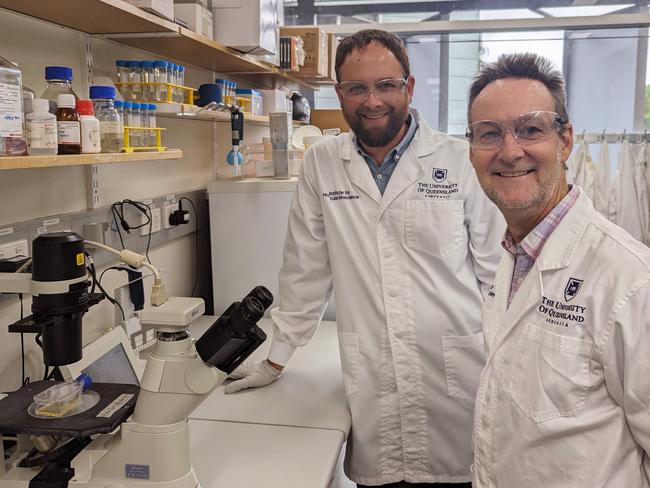
Prof King said during a stroke the brain becomes acidic.
“This then activates a receptor on the outside of brain nerve cells (neurons) that cause the nerve cells to die, and this is a major cause of the brain damage that occurs during stroke,” he said.
“Hi1a blocks the process, which prevents the neurons dying.”
He said it was similar during a heart attack where the heart becomes acidic and this activates a protein called ASIC1a on the surface of heart muscle cells, causing them to die.
“It is a major cause of the cardiac damage that occurs during a heart attack. Hi1a blocks ASIC1a, which prevents the cells from dying.”
He said the drug was first demonstrated to be effective for treating stroke.
“That work was used as a framework for its broader applications as a drug therapeutic for the heart,” Prof Palpant said.
“The Medical Research Future Fund’s grant from the Federal Government (announced today) is focused on its applications for heart disease, specifically for use in heart attacks and heart transplant.”
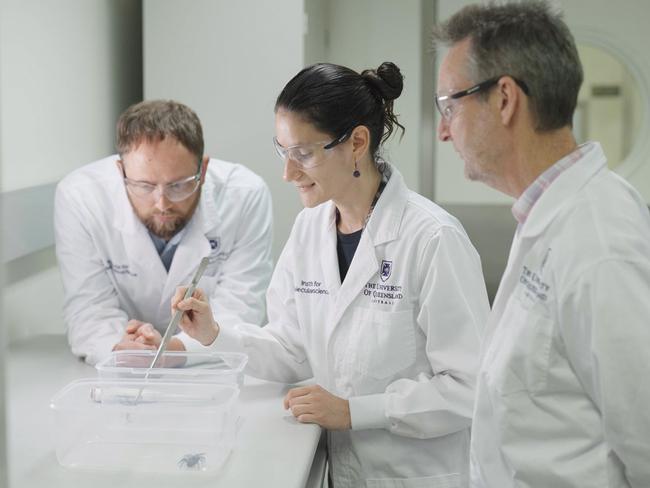
The funding is over five years.
“This research is a world-first and could only have come from our world-class Australian researchers,” Health Minister Mark Butler said.
“This could save thousands of lives. Heart attacks and cardiovascular disease are our biggest killers.
“The trials will give hope to thousands of Australians who suffer from a heart attack and heart failure. It has the potential to save lives and improve quality of life – not only for Australians, but right around the world.”
Prof Palpant said the heart was the most sensitive organ when it came to organ transplant.
“It can’t be maintained outside of the body for a very long period of time,” Prof Palpant said. “It’s a really demanding organ when it comes to the need to have oxygen.
“For this reason, the drug works by helping the cells tolerate that stressful period during the transplant (from a donor) and transportation so that the heart is healthier and more functional when it gets to the recipient.”
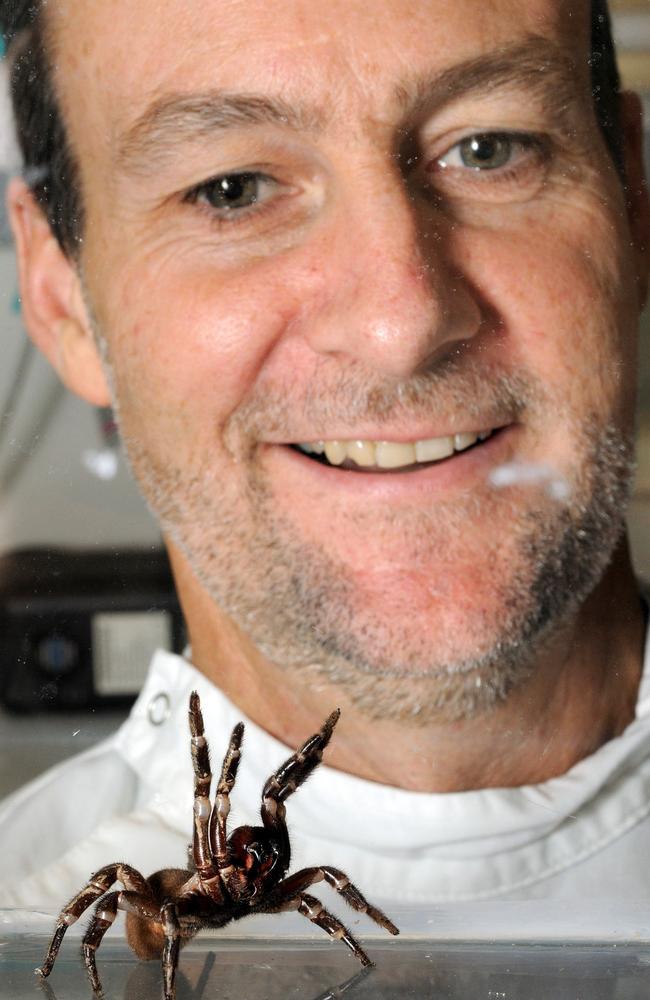
He said Prof King’s studies indicated that the drug can be given many hours after the onset of stroke and still be very effective.
“In the heart attack context, we envision getting the drug to the patient when they’re on the way to the hospital or before they have surgery to open up the artery of the heart so that the drug is circulating as soon as possible.”
Prof Palpant said they hope to provide the drug to first responders, delivered as an injection.
“Funnel-webs are my favourite spiders,” Professor King said. “They are generally quite docile and easy to milk.”
But it would not be feasible to produce enough Hi1a for clinical use by obtaining it from spider venom.
“We developed a miniaturised version of Hi1a that can be readily synthesised in the laboratory, and this is the compound that will be used for clinical trials,” Prof King said.
“Because the compound is so potent, the dose will be quite low, which helps to mitigate against side-effects.”
Prof Palpant is also a fan of the spider and says to treat them nicely as they have good things to provide us.
AT A GLANCE
Heart attack and stroke are the biggest killers in the world, accounting for about 30 per cent of deaths worldwide.
Each year, more than 55,000 Australians suffer one and around 7000 people will die.
Every day 100 people die from a stroke.
Funnel-web’s venom is one of the most lethal spider venoms in the world.
More Coverage
Originally published as Australian researchers use deadly funnel-web spider venom to create heart attack, stroke drug treatment




